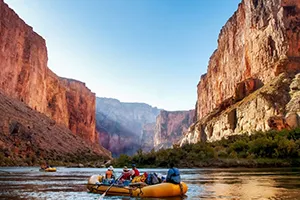 As the sports betting industry in Colorado has been thriving over the past four years, this November voters will have their say on whether to allow using more sports betting tax revenue on water projects. Proceeds from sports betting taxes have exceeded expectations, prompting legislators to seek their approval.
As the sports betting industry in Colorado has been thriving over the past four years, this November voters will have their say on whether to allow using more sports betting tax revenue on water projects. Proceeds from sports betting taxes have exceeded expectations, prompting legislators to seek their approval.
Sports betting operators in the Continental state are subjected to a 10% tax rate on their net proceeds, with a substantial portion of the funds allocated to water projects and water-related obligations.
When Proposition DD: Legalization and Taxation of Sports Betting was passed in 2019, the legislation set a threshold of $29 million per year in tax revenue. Any amount in excess is to be refunded to sports betting operators.
Last week, Jared Polis, Governor of Colorado, signed House Bill 1436 into law, creating a ballot measure for the November election to let voters decide if the state could use all revenue generated from sports betting taxes. The funds will continue to be used in the same way as now, with predetermined amounts going toward gambling addiction services, the Hold Harmless Fund, and various water projects and obligations.
Sports Betting Tax Revenue in 2024 is Expected to Exceed the $29 Million Cap by $2.8 Million
 If voters do not approve the measure, any funds above the $29 million cap will be refunded to sports betting operators. Back in 2019, the sports betting tax revenue estimations were based on limited data, considering Colorado was among the first states to authorize online sports betting.
If voters do not approve the measure, any funds above the $29 million cap will be refunded to sports betting operators. Back in 2019, the sports betting tax revenue estimations were based on limited data, considering Colorado was among the first states to authorize online sports betting.
As Sky-Hi News reported, the projections for the 2024 sports betting tax revenue point to an excess of $2.8 million. The amount increases to $7 million by FY 2025-2026.
Marc Catlin, Colorado State Representative, who sponsored House Bill 1436 commented on the legislation, confirming his hopes that sports betting would continue to be “a growing, steady revenue stream for water.” Likewise, the Colorado Gaming Association has expressed its approval of the ballot measure.
Julie McCluskie, Colorado’s speaker of the House, also commented on the measure, highlighting the general belief that the public had become increasingly aware of the importance of water resources to the state. The funds would be allocated to several water projects, as approved by the Colorado Water Conservation Board. A smaller portion of the sports betting tax will go toward the Colorado Division of Gaming and several problem gambling programs.
In 2019, the state’s 33 licensed casino operators were allowed to obtain master licenses to offer retail and online sports betting through a website or mobile app. Licensed operators are supposed to pay an initial licensing fee of $2,000 and a renewal fee of the same amount every two years.